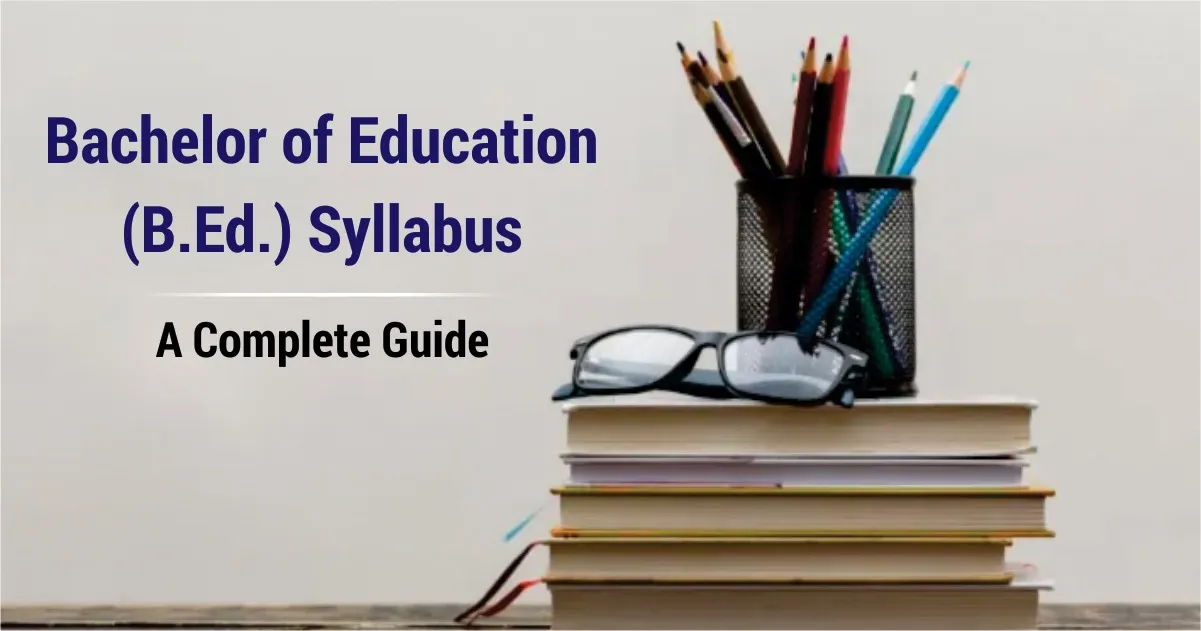The Bachelor of Education (B.Ed.) syllabus is designed to provide aspiring teachers with a
strong foundation in educational theory, pedagogy, and practical teaching skills. This guide
provides a detailed overview of the B.Ed. syllabus, covering its structure, subjects, and
practical components.
Introduction to B.Ed.
Bachelor of Education (B.Ed.) is an undergraduate professional degree that prepares students
for a career in teaching. The program focuses on developing essential teaching skills,
understanding educational theories, and gaining practical experience in educational
settings.
Structure of B.Ed. Syllabus
The B.Ed. syllabus is typically structured into two years, divided into four semesters. The
curriculum includes a combination of theoretical knowledge, practical training, and
specialized pedagogical courses. Here's an overview of the structure:
Year 1: First Semester
- Childhood and Growing Up
- Understanding child development theories and their implications for teaching.
- Contemporary India and Education
- Analyzing the relationship between education and social change in modern India.
- Learning and Teaching
- Introduction to teaching methods, strategies, and classroom management techniques.
- Language Across the Curriculum
- Enhancing language skills and integrating them into various subjects.
- Understanding Discipline and Subjects
- Deepening knowledge in specific disciplines and understanding disciplinary
perspectives.
- Gender, School, and Society
- Exploring gender issues in education and promoting gender-sensitive teaching
practices.
Year 1: Second Semester
- Knowledge and Curriculum
- Curriculum design, development, and evaluation.
- Assessment for Learning
- Techniques and methods of assessment, evaluation, and feedback.
- Creating an Inclusive School
- Strategies for inclusive education and managing diversity in classrooms.
- Health, Yoga, and Physical Education
- Importance of physical and mental health in the learning process.
- Drama and Art in Education
- Integration of arts, drama, and creative expression in teaching and learning.
Year 2: Third Semester
- Pedagogy of School Subject (Part I)
- Specialized teaching methods for different school subjects.
- Pedagogy of School Subject (Part II)
- Continued exploration of teaching strategies and methodologies.
- Teaching Practice (School Internship)
- Practical training in teaching, classroom management, and educational leadership.
Year 2: Fourth Semester
- Pedagogy of School Subject (Part III)
- Advanced pedagogical practices and subject-specific teaching techniques.
- Pedagogy of School Subject (Part IV)
- Application of pedagogical theories in diverse educational contexts.
- Internship in Teaching
- Extended practical experience in teaching, including reflective teaching practices
and assessment.
Subjects Covered in B.Ed. Syllabus
The B.Ed. syllabus covers a wide range of subjects to provide comprehensive training in
education. Some of the core subjects include:
- Childhood and Growing Up
- Contemporary India and Education
- Learning and Teaching
- Language Across the Curriculum
- Understanding Discipline and Subjects
- Gender, School, and Society
- Knowledge and Curriculum
- Assessment for Learning
- Creating an Inclusive School
- Health, Yoga, and Physical Education
- Drama and Art in Education
- Pedagogy of School Subjects (English, Mathematics, Science, Social Studies, etc.)
- Internship in Teaching
Practical Training
Practical training is an integral part of the B.Ed. program and includes teaching practice
and internships in schools. This hands-on experience allows students to apply theoretical
knowledge in real-world educational settings, enhancing their teaching skills and classroom
management abilities.
Conclusion
The B.Ed. syllabus is designed to prepare educators for the complexities and challenges of
the teaching profession. It provides a balanced mix of theoretical knowledge, practical
training, and specialized pedagogical skills necessary for effective teaching and student
engagement.
Understanding the B.Ed. syllabus is crucial for aspiring teachers to excel in their
profession and contribute meaningfully to the field of education.
